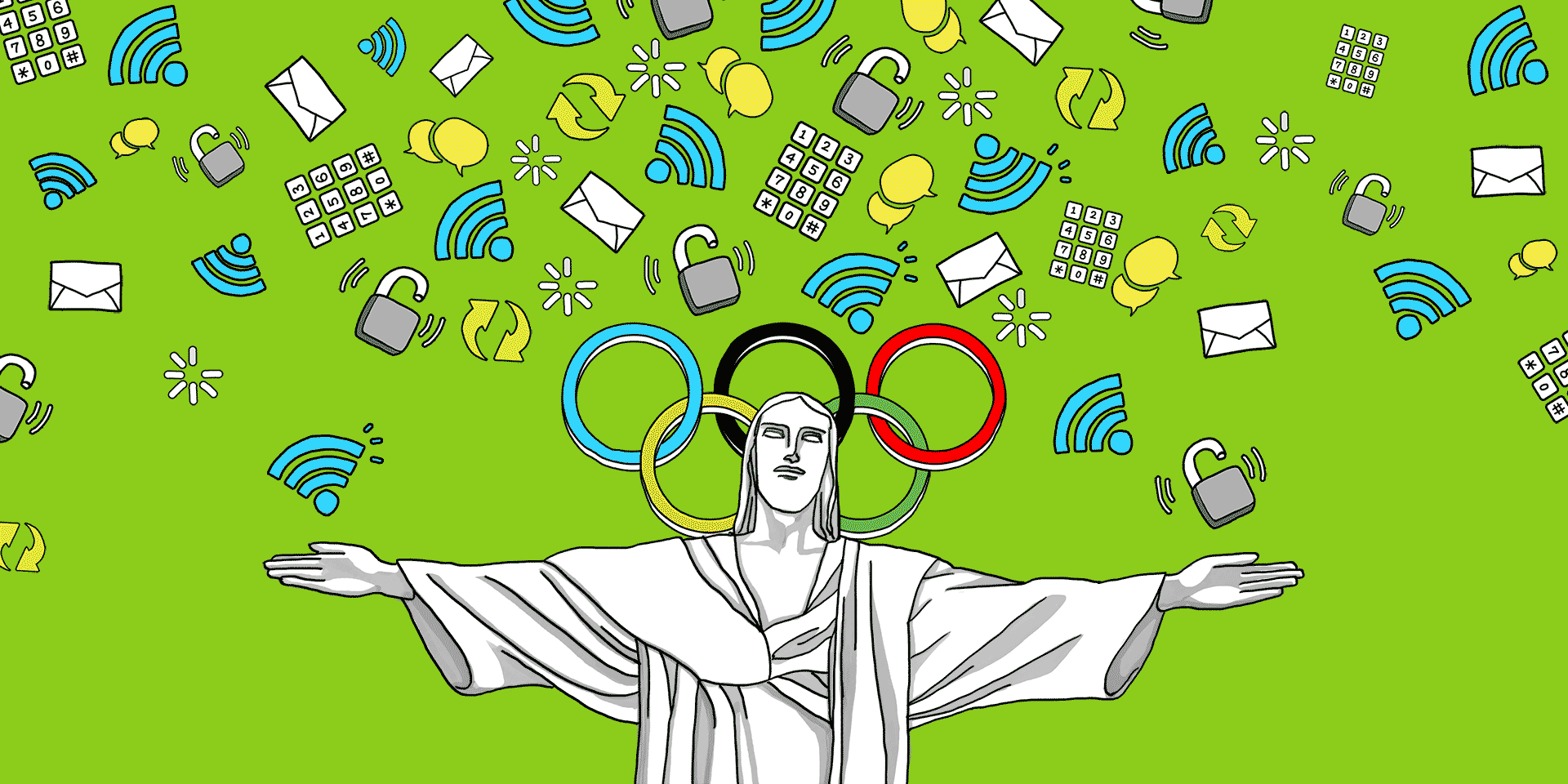Today we delivered a petition to fight internet shutdowns during the Rio Olympics, addressed to Brazil’s Minister of Justice and Minister of Defense. Supporters from 66 countries sent a single, powerful message: the world is watching, and we won’t tolerate any interference with the right to free expression. As the text reads:
Internet shutdowns — including “jamming” or blocking the mobile internet — harm human rights, block emergency services, and stifle the economy. We call on you to keep the internet on during the 2016 Olympic Games in Rio de Janeiro.
The petition is part of a new strategy in our #KeepitOn campaign to fight internet shutdowns. Instead of responding after an internet shutdown has already taken place, we’re taking action in Brazil to prevent one.
We’re not sure what will happen over the coming days. But we’ve seen that in Pakistan, Ethiopia, Bahrain, and other areas around the world, internet shutdowns tend to take place during times of political unrest, when free expression is already under attack. They take complex forms — from blanket disruptions that plunge entire societies into darkness and disrupt the economy on a broad scale, to a smaller, targeted shutdown designed to muzzle specific communities.
So when Brazil acquired technology to monitor the games, and the authority to “jam” illegal drones and shut off all or parts of the mobile internet (see the report in Portuguese), we asked our members to help us shine a global spotlight on the issue. Our hope is that it will stop a shutdown from happening.
There have been worrying signs of a clampdown on free expression during the Olympics. On Friday, several thousand people gathered for a protest at the opening ceremony. Local authorities responded by spraying tear gas. And over the weekend, security forces ejected fans from a soccer game in the city of Belo Horizonte because they were wearing t-shirts criticizing Brazil’s interim president, Michel Temer.
The broader political situation is in flux: Brazil is facing a major economic crisis, activists are calling for social change, and there is widespread debate over the impeachment of former President Dilma Rousseff. Sadly, the government has responded to protests by filming activists and monitoring their social media accounts. There are reports of police abuse, and Amnesty International has documented that police killings in Rio de Janeiro have increased by 103% in recent months. And only a few weeks ago, Brazil shut down WhatsApp — cutting off access for 100 million users — during a criminal investigation.
Fortunately, even if the circumstances appear to be ripe for a shutdown in Rio, there is a growing global consensus that they cannot be tolerated. U.N. Special Rapporteur Maina Kiai has pushed back strongly against the use of shutdowns during protests, and in July the United Nations Human Rights Council passed a resolution that specifically condemns internet shutdowns. The Global Network Initiative also joined the Industry Dialogue — which together include Facebook, Google, Microsoft, AT&T and Vodafone — to speak out against shutdowns. This statement was swiftly followed by a policy position from the GSMA, one of the world’s largest technology associations, that laid out strict standards for orders issued to telcos to restrict service.
We’re encouraged to see more people and organizations globally taking action to stop shutdowns, wherever they occur. The games continue. Together, we will be watching.
